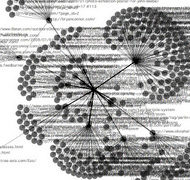Everything Matters: Managing Operations as a Cultural Act
Blog / Produced by The High Calling
Changes at work can create upheaval, leaving staff feeling devalued and functionally hogtied. Changes at work can also empower staff with new efficiencies, freeing more time for key tasks. As operations manager at a small investment advisory firm, I help identify and execute changes. I minimize the upheaval and magnify the empowerment that change brings.
Sometimes.
This team has ridden out stock market storms with not even a hangnail. So I really didn’t expect reducing our file cabinet count to be a big deal.
It happened like this:
Last year, we remodeled our offices. Renovating within the same footprint is the ultimate exercise in give-and-take. Every increased allocation of space here must be stolen from space there. In order to achieve one particular goal, we chose to give up some room for file cabinets. We’d already taken a few tentative steps along the path to electronic filing, which committed us to continuing from manila to PDF. Now with less filing space, we had to lace up our boots and hike that trail to its end.
My coworkers are probably a lot like yours. Some of them eagerly anticipate new procedures at the office. Others are comfortable with familiar routines, ways they’ve practiced and perfected over years. As operations manager, I wanted to honor everyone.
What I’ve learned is that I can’t. Not completely, anyway. Sometimes my carefully-derived predictions about their reactions are all wrong.
For example, I met with our file clerk to assure her that her job was not endangered by our plans, anticipating that her concerns would be my biggest hurdle. I was mistaken. She was fine.
In another instance, I spent time discussing electronic files and their benefits with one of our staff who didn’t like the plan. We talked about the files being backed up remotely, increasing the security of vital information. We talked about not having to lug files around or nurse paper cuts. She got all that.
She mourned anyway. Gone forever from her workday was the satisfaction she derived from rummaging around, then emerging triumphantly with the one bit of information she needed to complete a nuanced analysis. Tactile reinforcement—paper put up for filing, indexing the productivity of her day—was gone. Our move toward streamlining left her work feeling unreal to her. I didn’t see that one coming, and I apologized.
I believe people want to do work that provides something of value. And when it does, they’re willing to face challenges. Still, a tough row to hoe should result from hard ground, not from a rusty tool. Managing operations requires that I know the difference. It requires that I understand our people, our specific history, and our unique contribution to our profession: the whole culture of my particular workplace. When I don’t, when I shoehorn a change into our routine without context, with no discussion, with no consultation, with no regard for that culture or God’s concern for it, it introduces needless, distracting challenges.
The minute our firm hired its second employee, the prospect of providing ideal working conditions for all evaporated. It became too complex for simple solutions. When change is upon us, I can’t ensure that everyone’s first choice is implemented. I can’t create the perfect environment. But I can strive to hear and to help everyone feel heard.
We’ve all identified a thing or two we miss about our old space (the office where my husband slipped an engagement ring onto my finger is gone, for example). But we’ve also learned to love the new. Cultural understanding got us a long way. Caring covered the rest.
* * * * *
The "Everything Matters" Collection
- Creating a High Calling Culture
- Everything Matters: Editing as a Cultural Act
- Everything Matters: Easter as a Cultural Act
- Everything Matters: Teaching as a Cultural Act
- Everything Matters: From Rusty Chevy to Chrome-Plated Couch
- Everything Matters: Managing Operations as a Cultural Act
- Everything Matters: Reading as a Cultural Act
- Everything Matters: Hospitality as a Cultural Act
- Everything Matters: Living Alone as a Cultural Act
- Everything Matters: Travel as a Cultural Act
- Everything Matters: Public Relations as a Cultural Act
- Everything Matters: Playing Video Games as a Cultural Act
- Everything Matters: Book Publicity as a Cultural Act
Image by Anthony Mattox. Used with permission. Sourced via Flickr. Post by Sheila Lagrand. Sheila earned her doctorate in anthropology. She is an active member of The High Calling.





